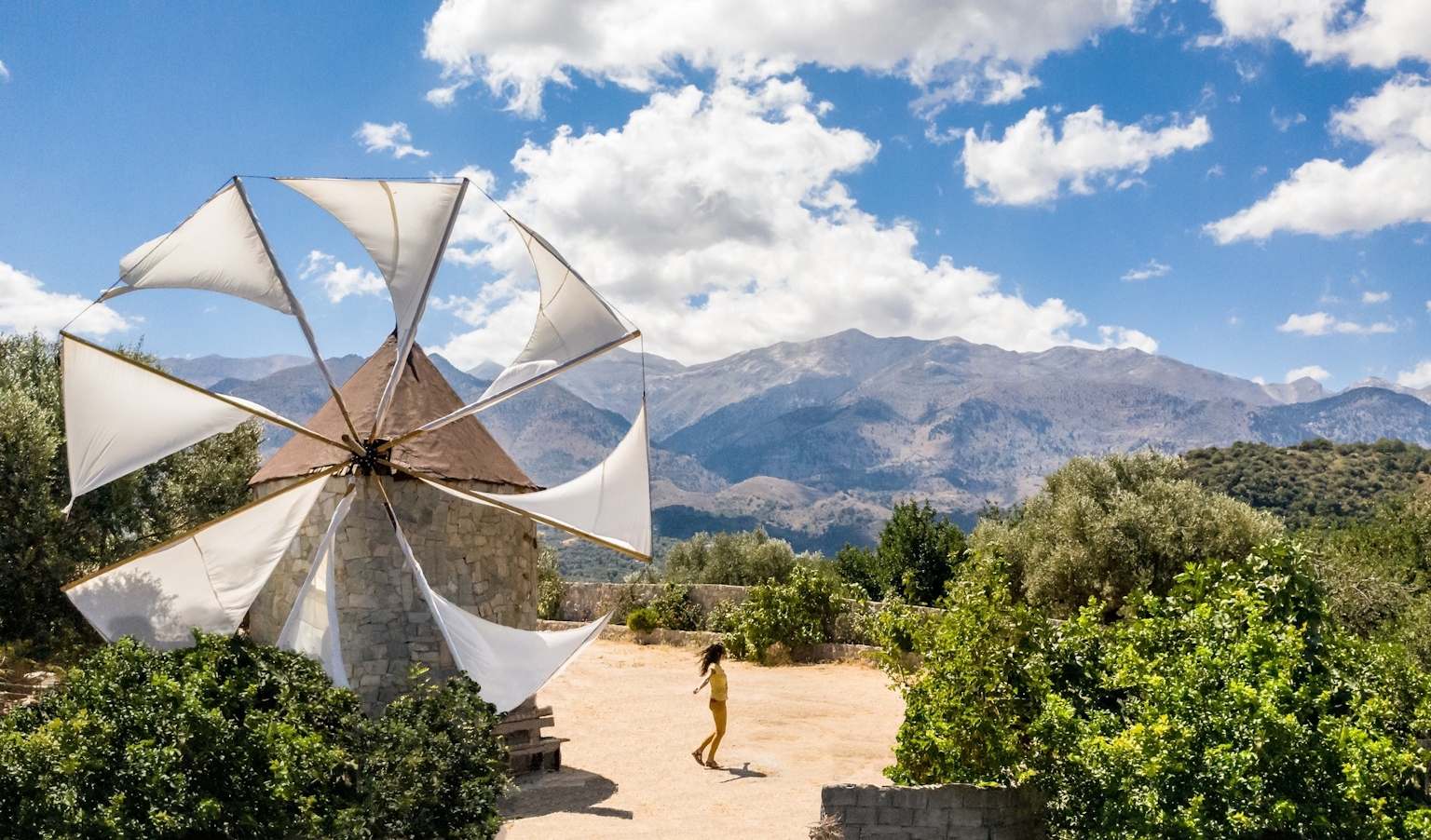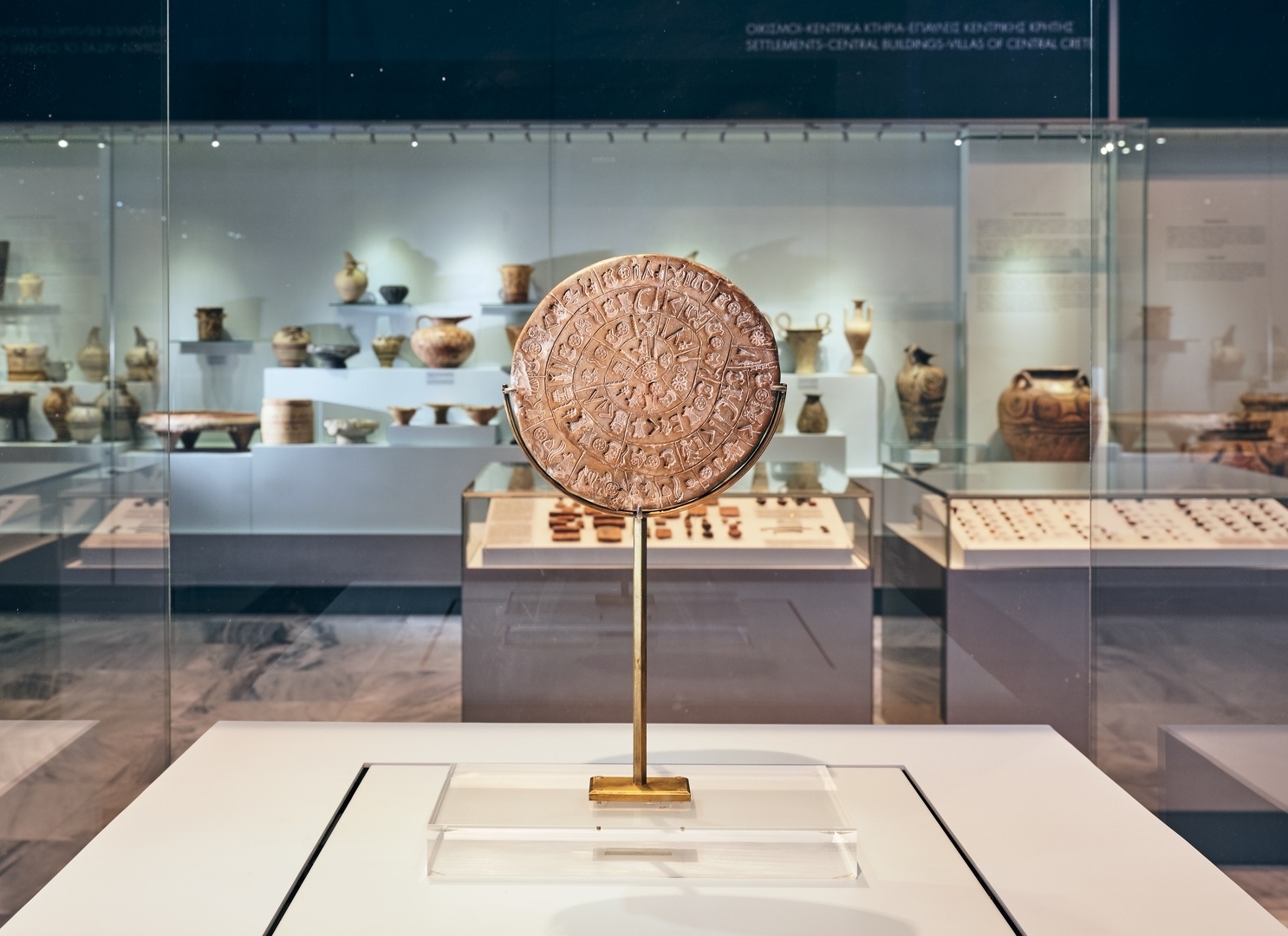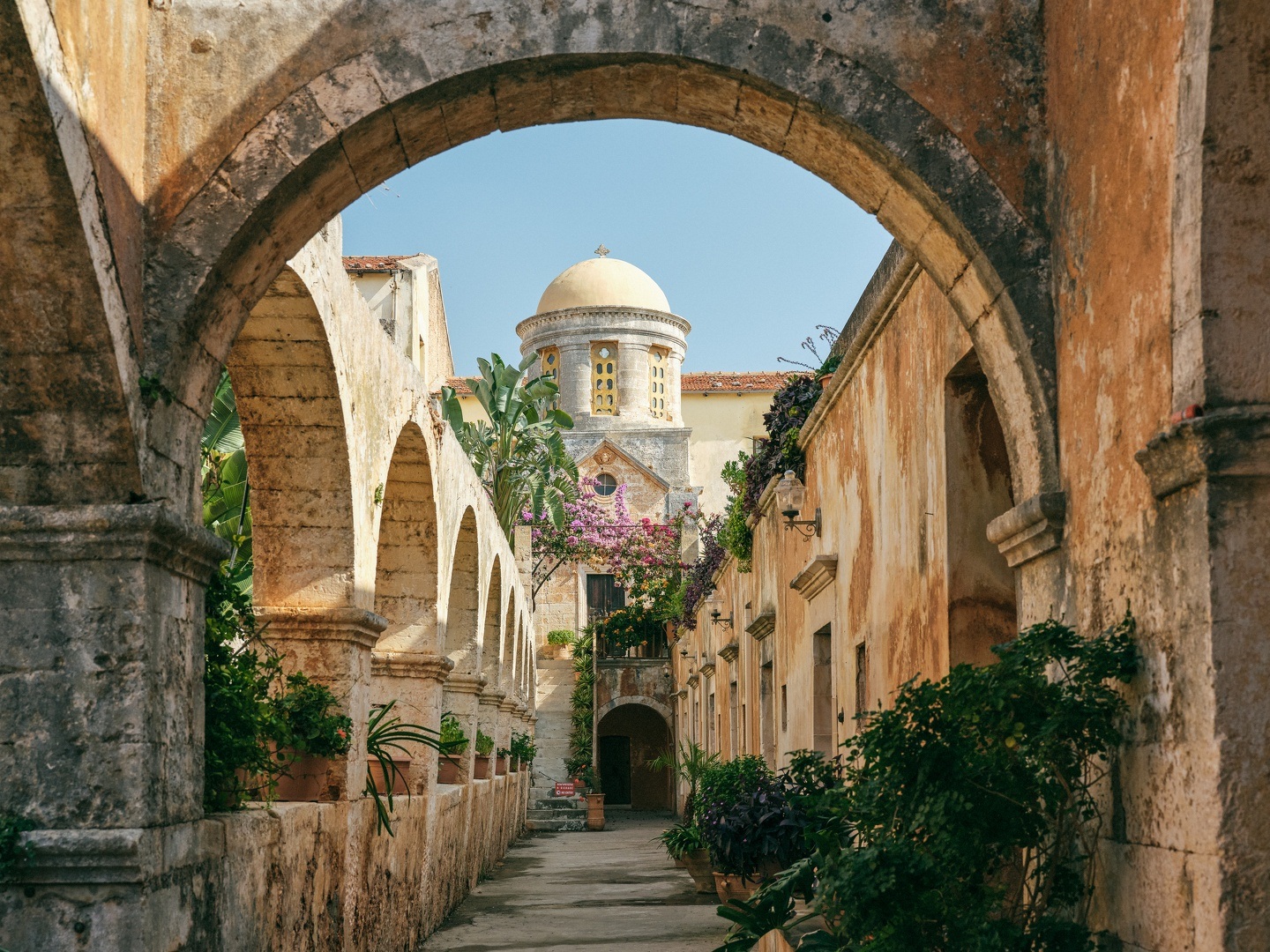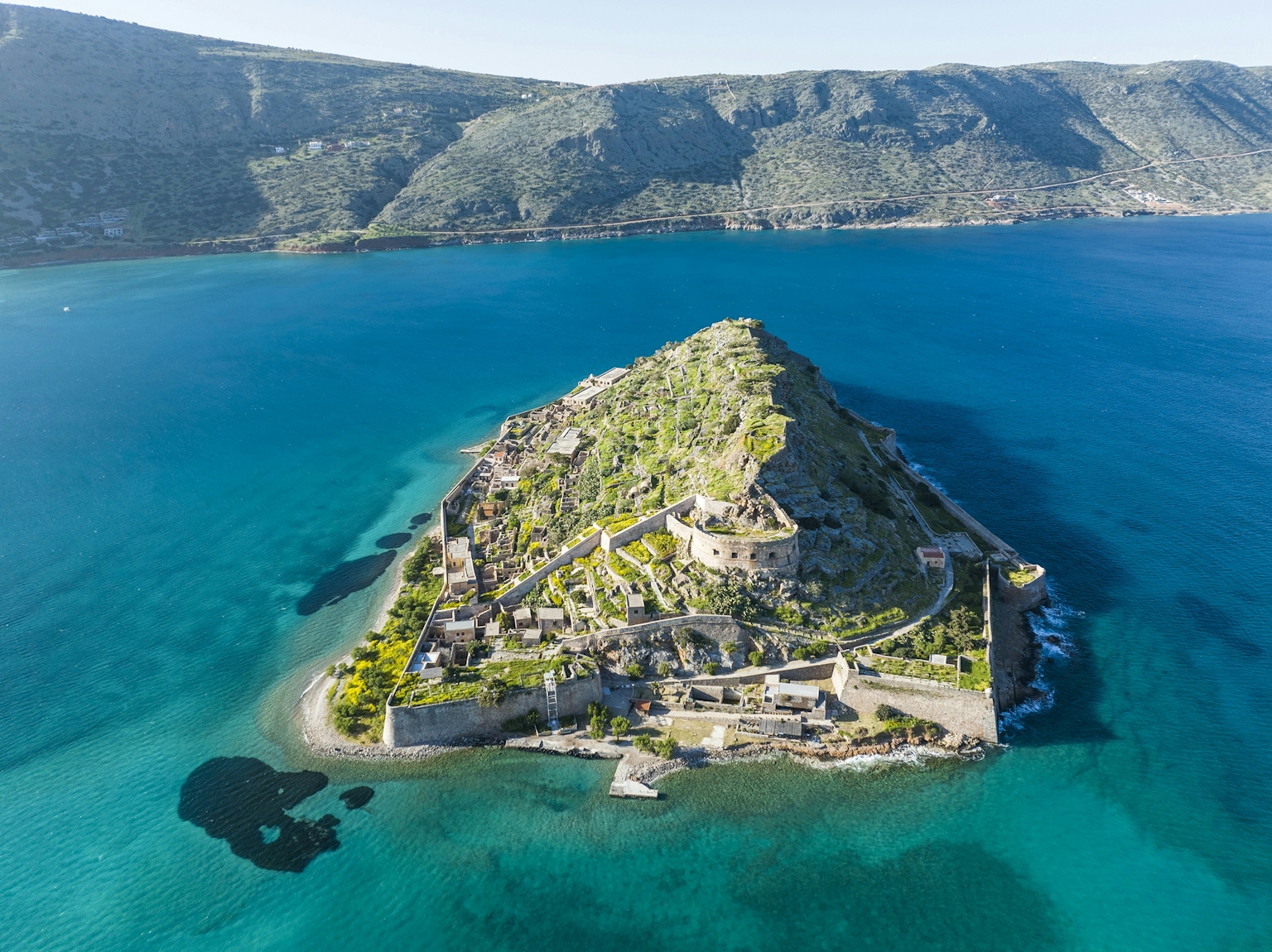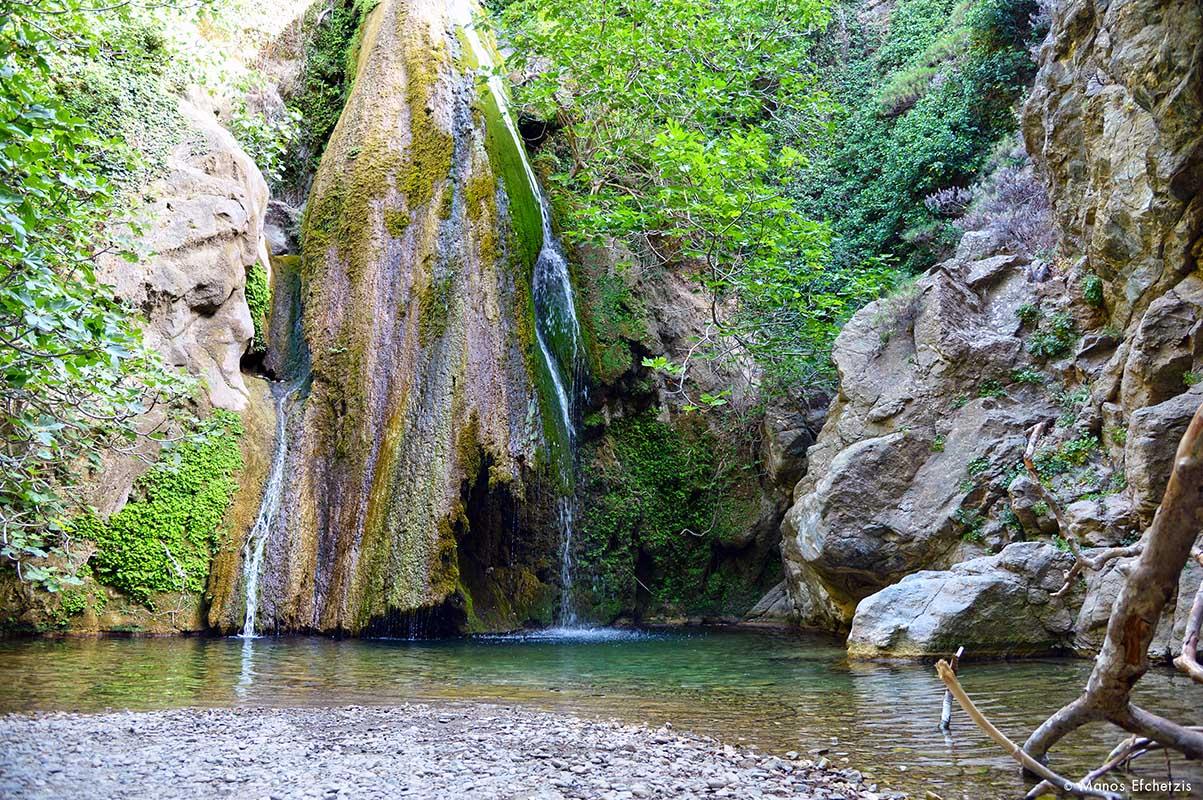
Wild greens, delicate pastry, and the taste of Cretan Easter

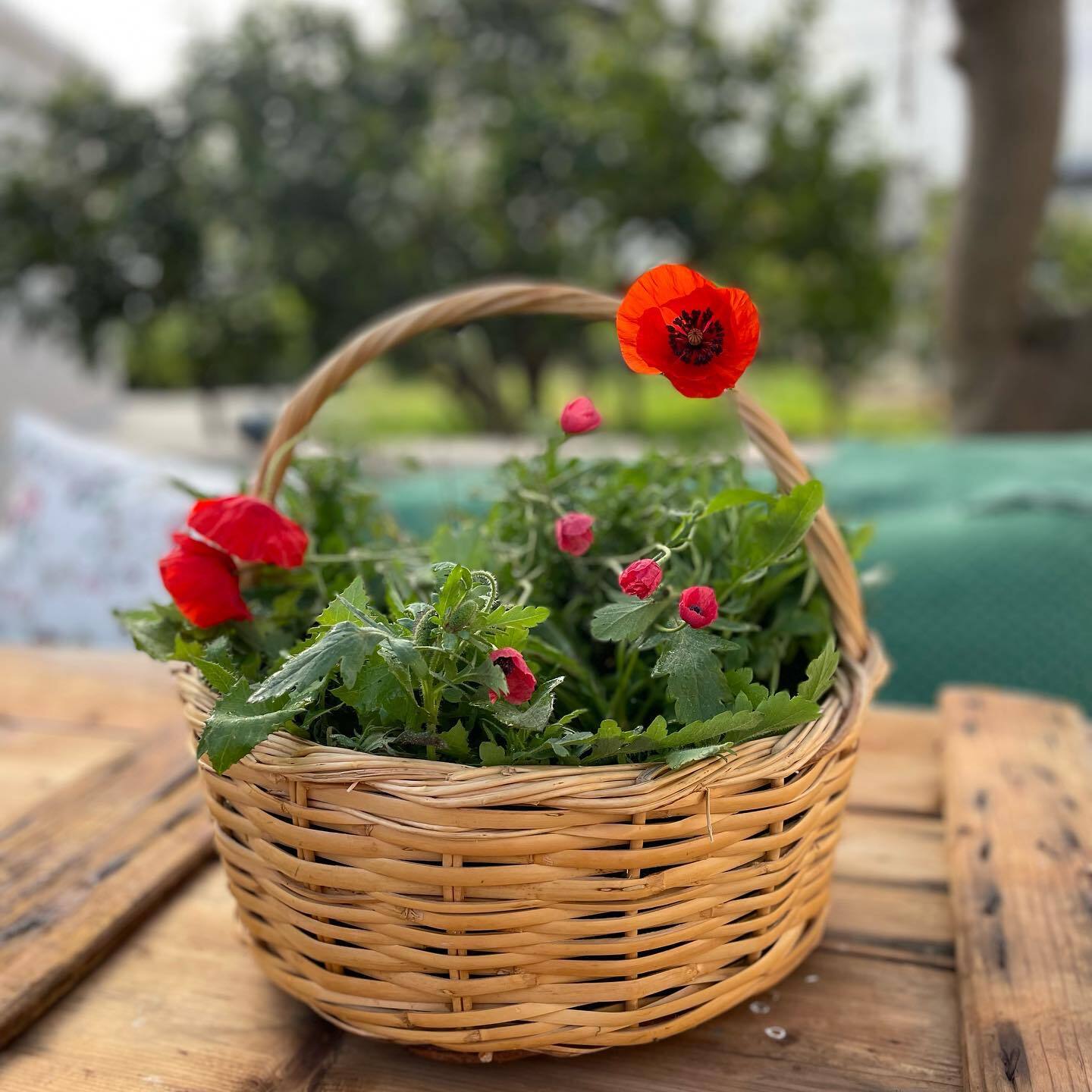
Paparounopites are savoury pies filled with koutsounades — the wild greens that blossom into bright red poppies. These incredibly tasty pies are a staple on the Cretan Easter table.
Dough ingredients:
-
Flour (as much as needed)
-
A pinch of salt
-
1 wine glass of olive oil
-
Juice of 1 small lemon
-
1 raki glass of raki
-
1 glass of lukewarm water
Filling ingredients:
-
2 kilos of sauté greens (koutsounades, fennel)
-
1 bunch of fresh spring onions, finely chopped
-
2 large dry onions, finely chopped
-
1 glass of olive oil
-
Salt and pepper
Step 1: Make the dough
In a mosora (large mixing bowl), pour in half the flour and make a small well in the center. Add all the wet ingredients and salt into the well. Mix and gradually add flour, kneading until you get a medium dough that doesn’t stick to your hands. Cover with a clean towel and let it rest for about an hour.
Step 2: Prepare the filling
Wash the greens thoroughly and let them drain in a colander. Chop them into small pieces. In a deep pot, heat some olive oil and sauté the onions and greens. Season with salt and pepper. Once cooked, place them back in a colander to release all excess liquids and let them cool down.
Step 3: Shape the pies
Roll out the dough using a xyliki (wooden rolling pin) into a thin sheet. Use a small dessert plate to cut out round pieces. Place a spoonful of filling in the center of each one and fold them into half-moons. Seal the edges well — press them with your fingers or use a fork to avoid any filling spilling out.
Step 4: Fry the pies
Heat olive oil in a pan until hot. Fry each paparounopita for 1–2 minutes on each side, until golden.
Cretan glossary:
-
Mosora: a large clay or metal mixing bowl
-
Xyliki: a wooden rolling pin for opening phyllo
By Lena Igoumenaki
President of the Cretan Cuisine Festival Association
Cretan Cuisine Festival

Mizithropites: Authentic Cretan Pies
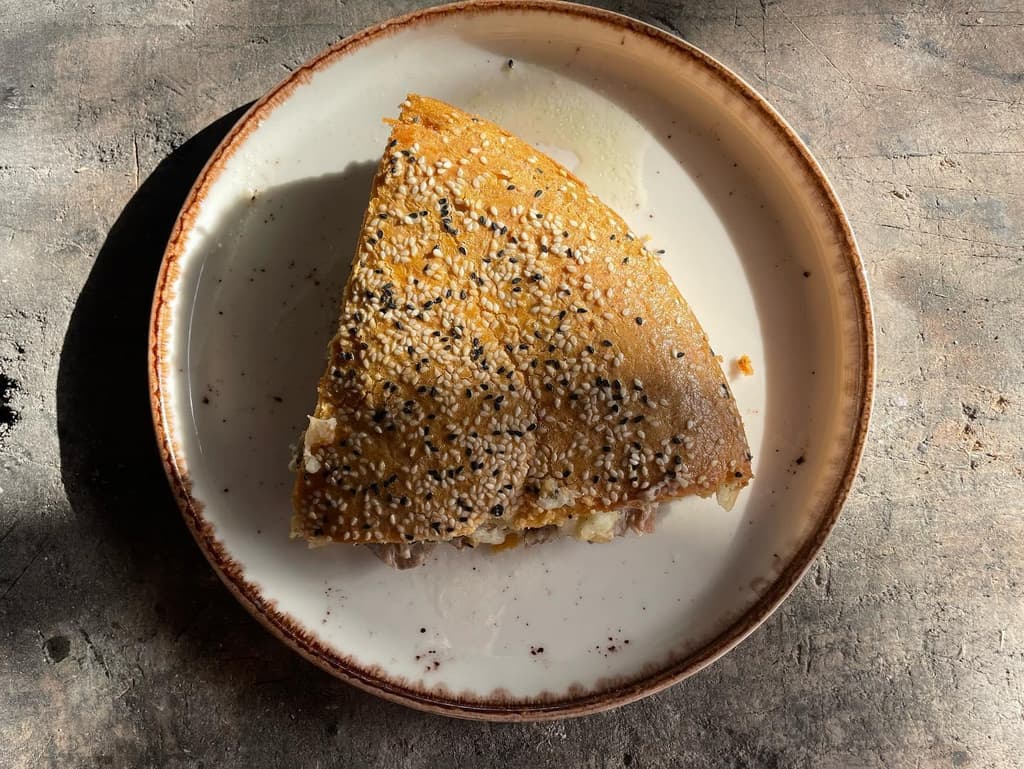
Meat cake
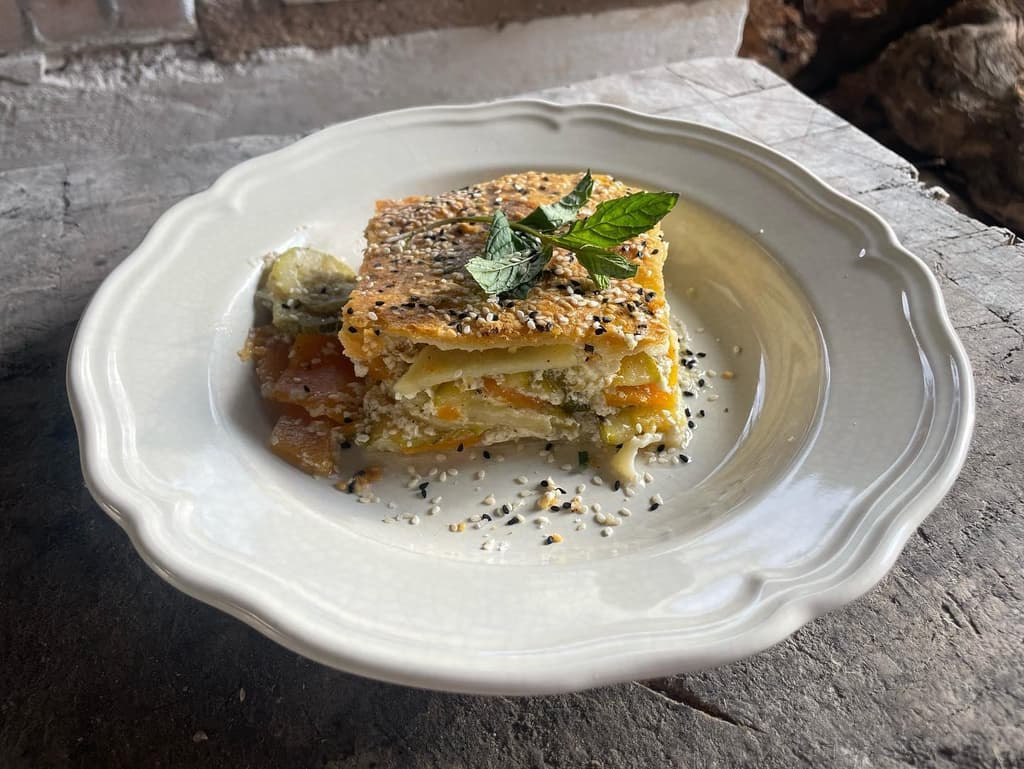
Chania Boureki or Courgette Boureki
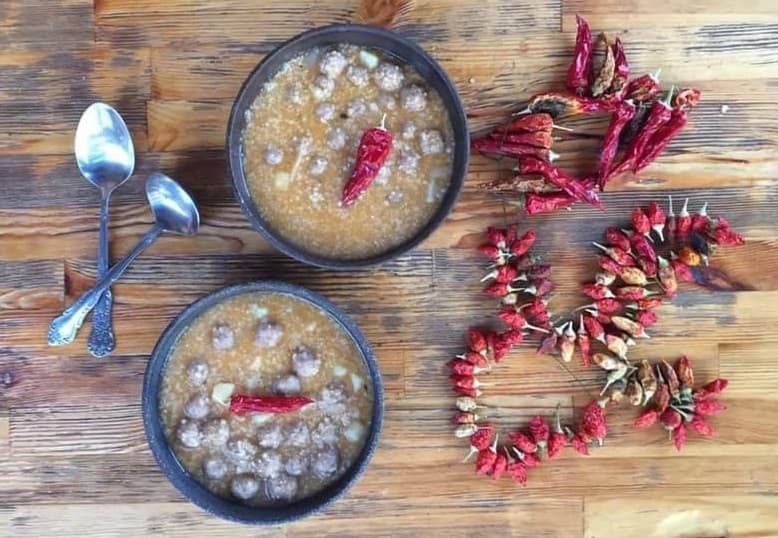
Topia (Balls)

The Traditional 'Bread of the Year'

Snails with Broad Beans and Artichokes

Cretan Ospriada or Palikaria (A Legume Dish)
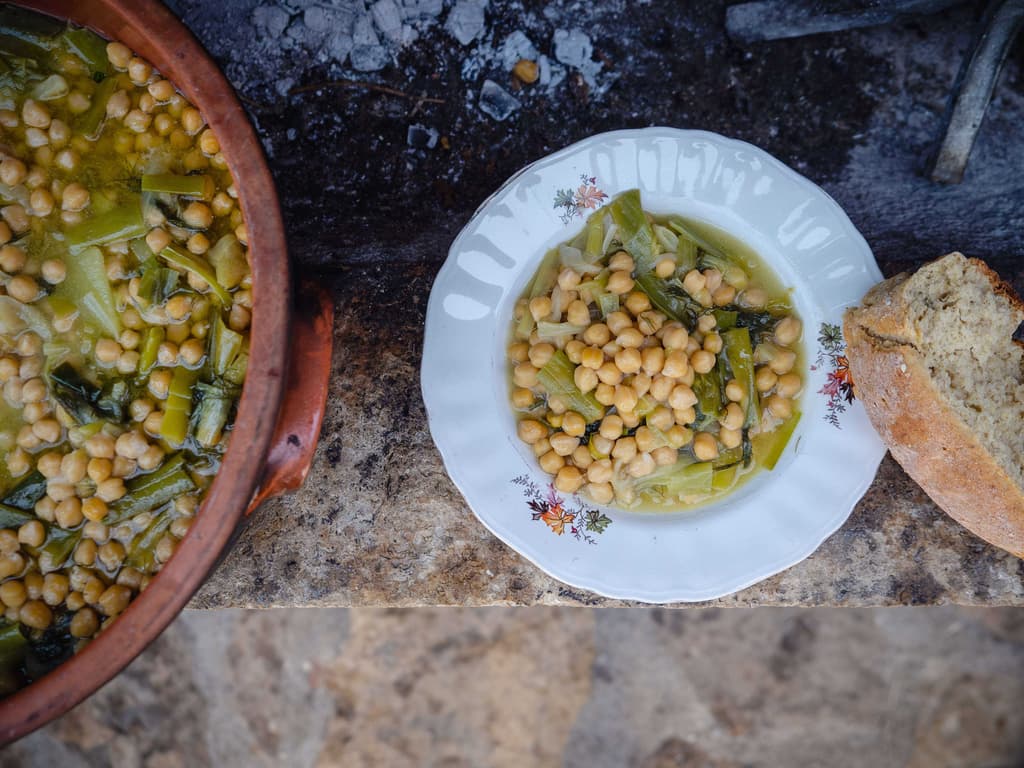
Chickpeas with Wild Leeks, Flour and Lemon Sauce

Pies with ‘Yachnera’ Greens

Fennel Pie

Sfakian Pie or Sfakianopita

Biscuits with Sesame Seeds

Sweet Rice Pie or 'Tzoulamas'

Apostoli White-Eyed Bean

Almond-Infused Goat Dish with Fennel: A Fresh Delight

Lazarosavato
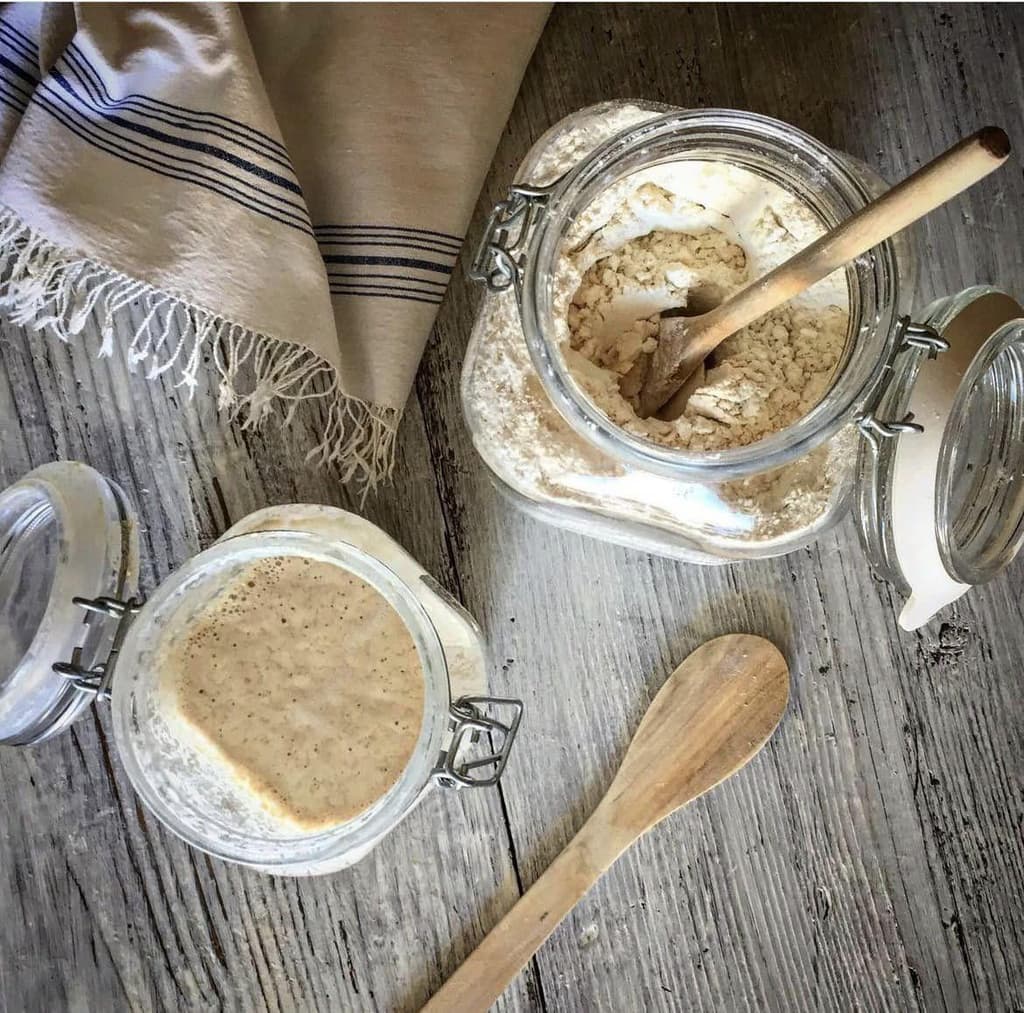
The Holy Week Sourdough

Nerati Mizithropita

Easter Eggs

Kalikota

Stuffed Courgette Flowers

Stuffed Vine Leaves

Cracked Wheat and Snails

Chochli Boubouristi (Snails Face Down)

Mangiri
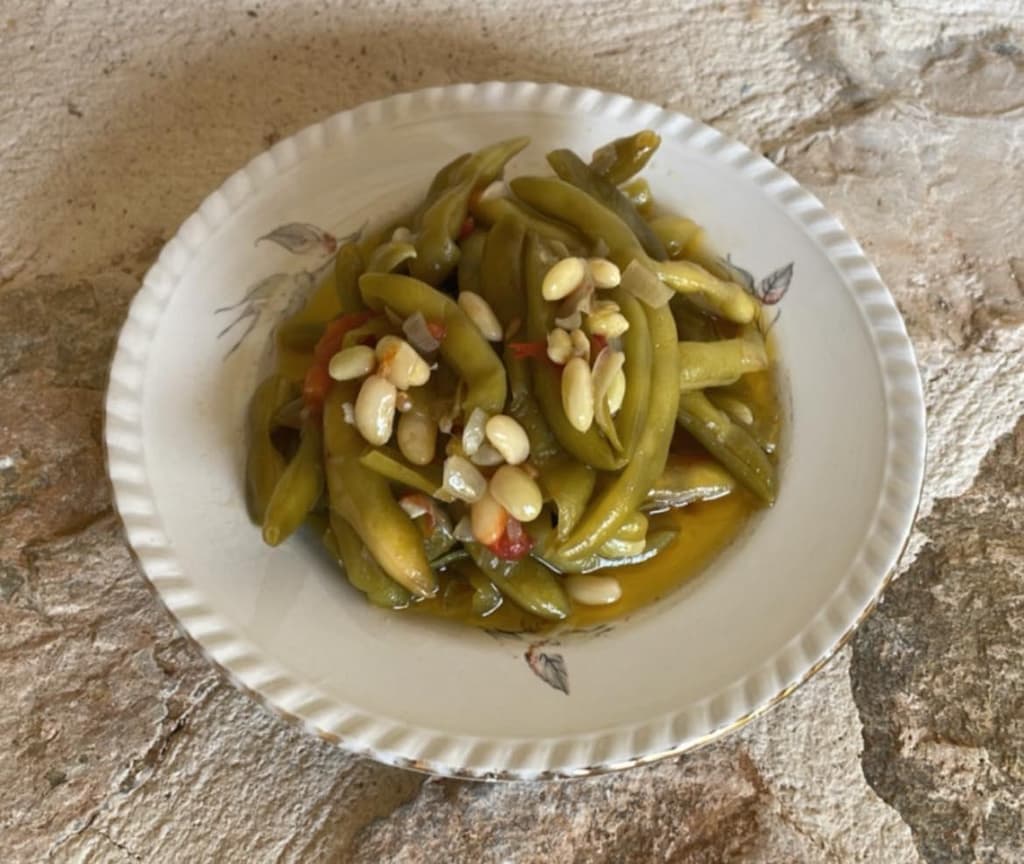
Symian Bean

Cretan Pilaf
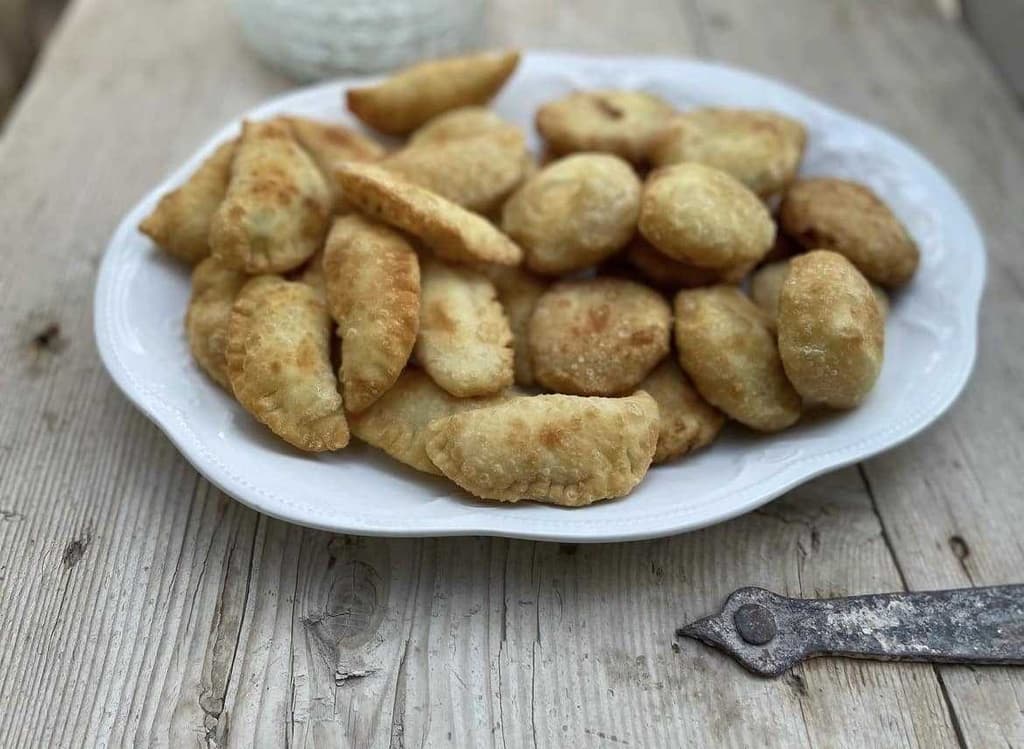
Rethymno Water Pies
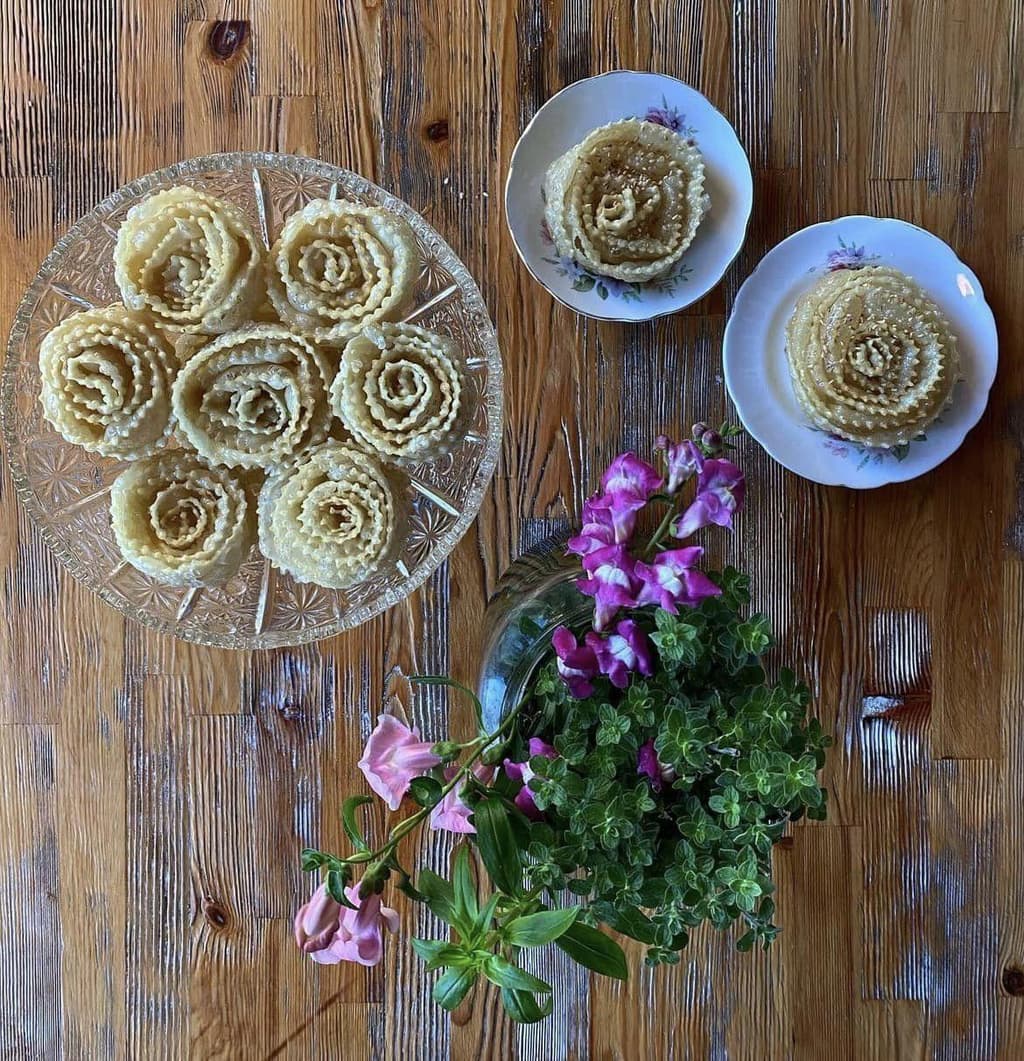
Xerotigana
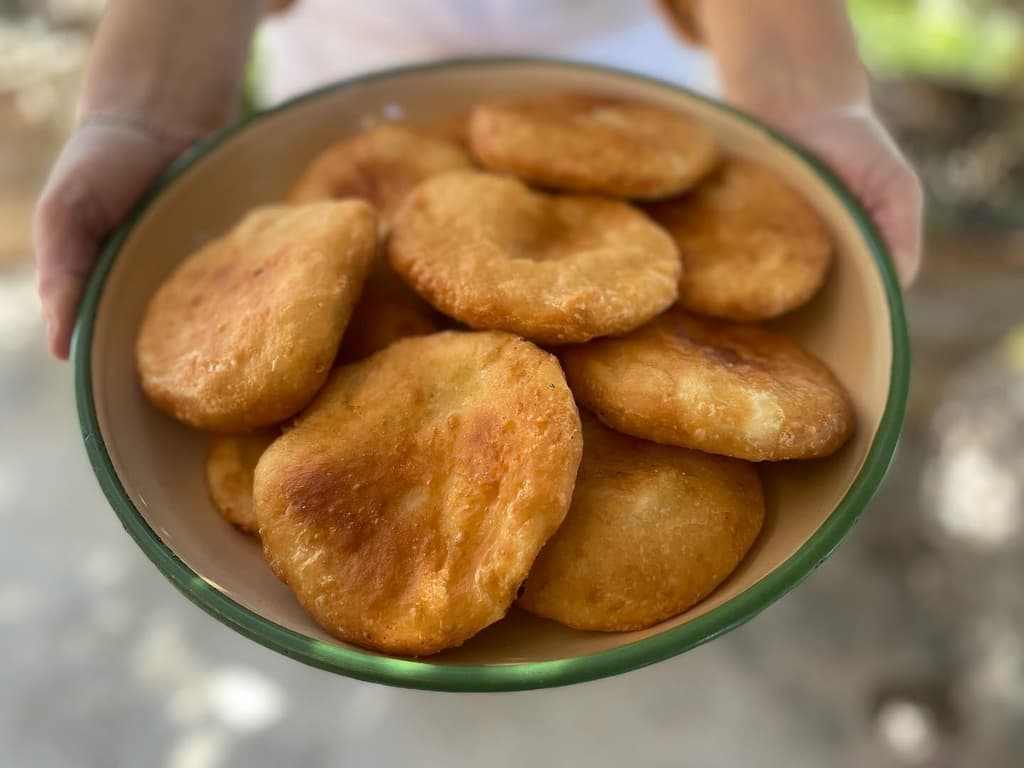
Agnopites
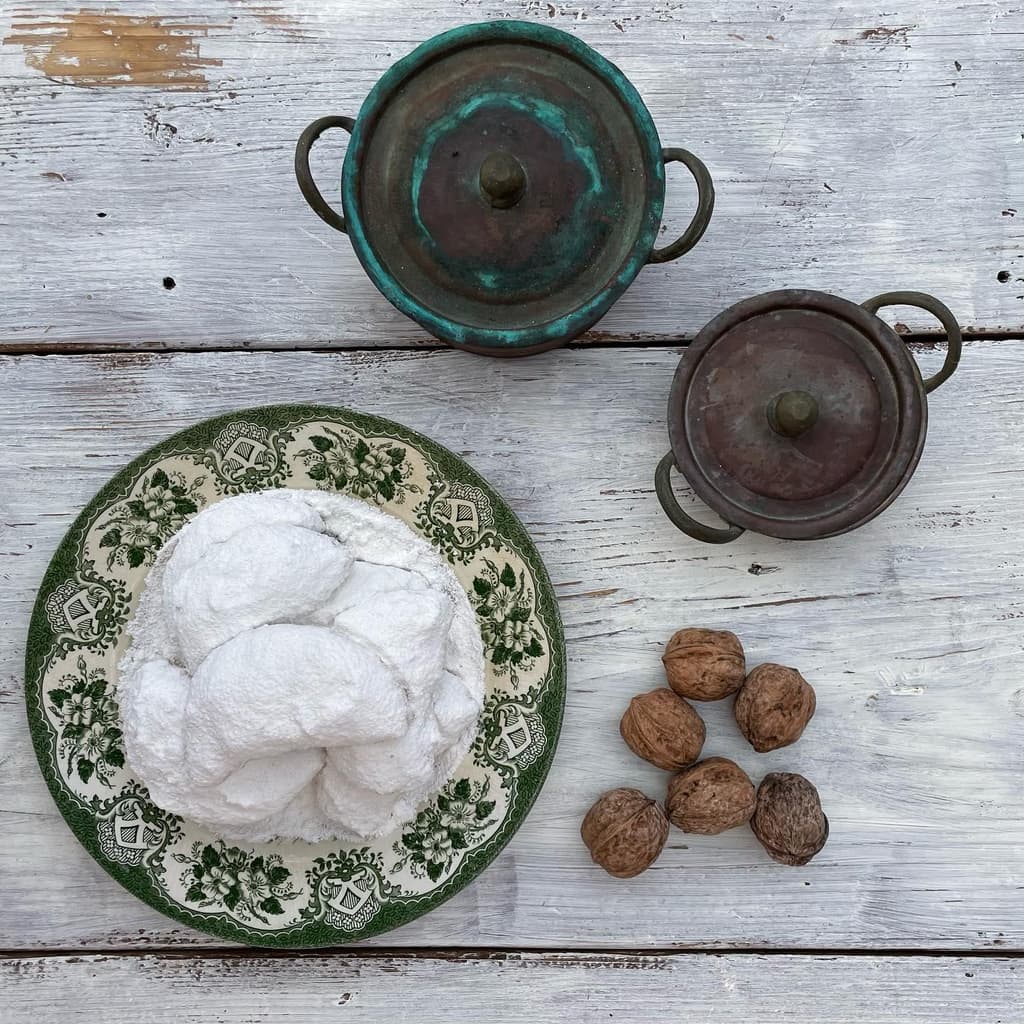
Patoudo
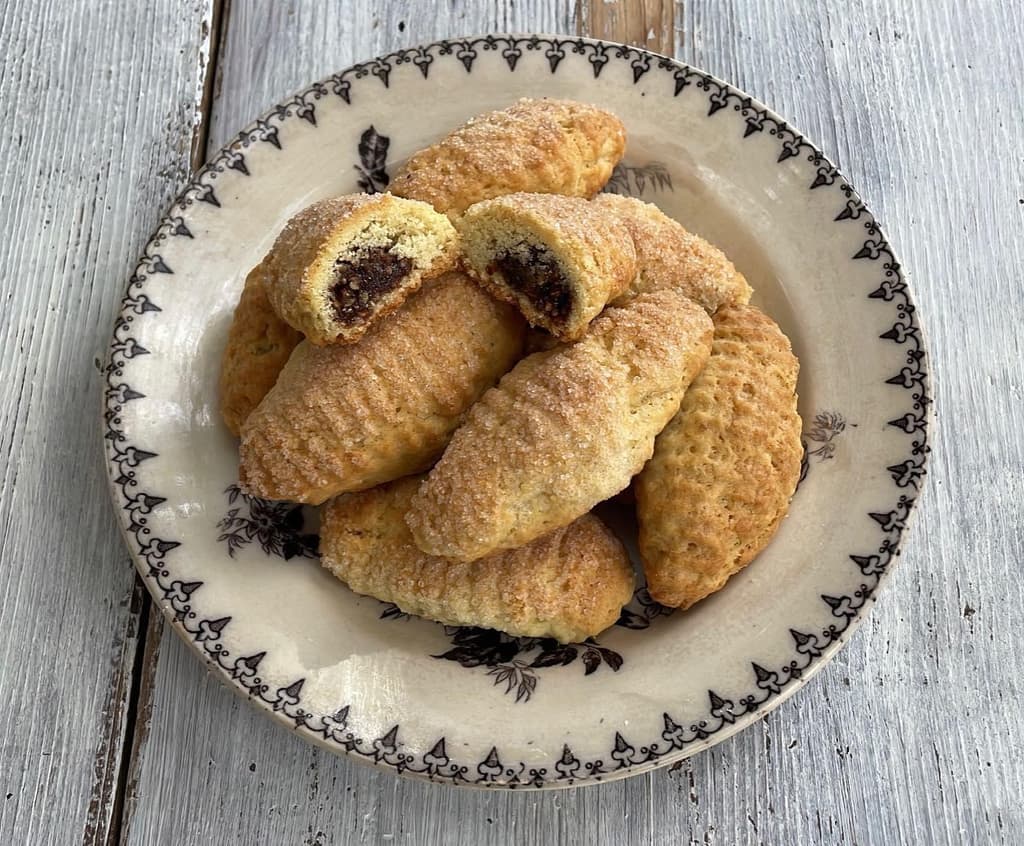
Safidota
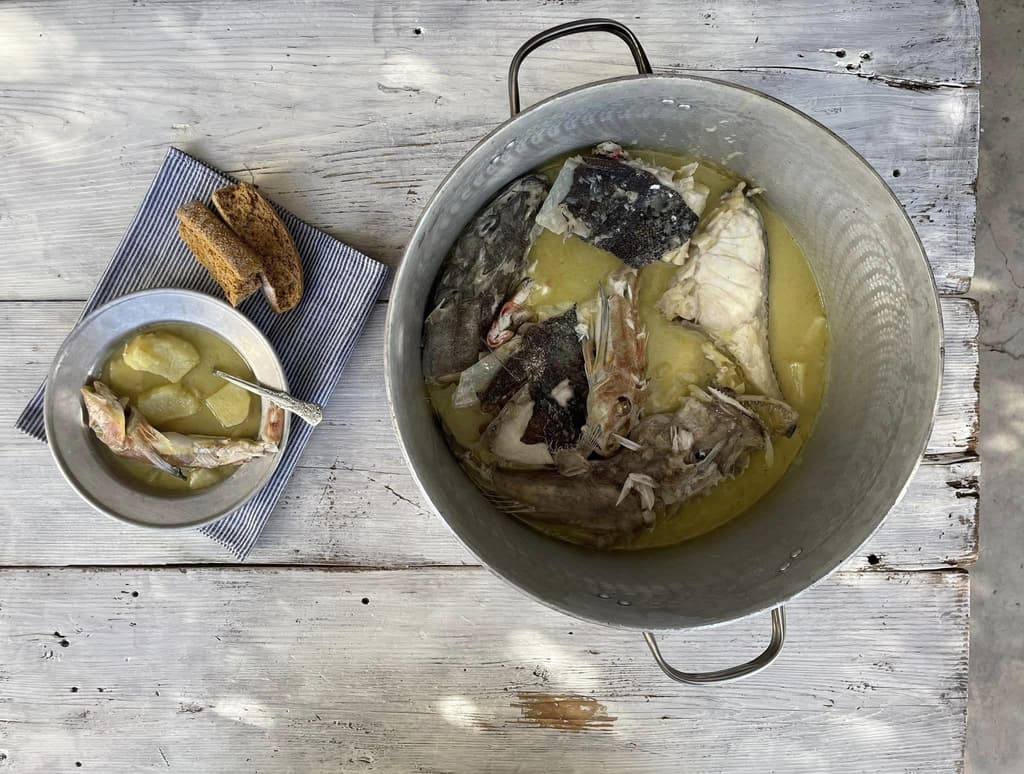
Kakavia (Fish Soup)

Cretan Greek salad

The Sweet Bounty of the Cretan Harvest

Okra and Unripe Grape

Kapriko
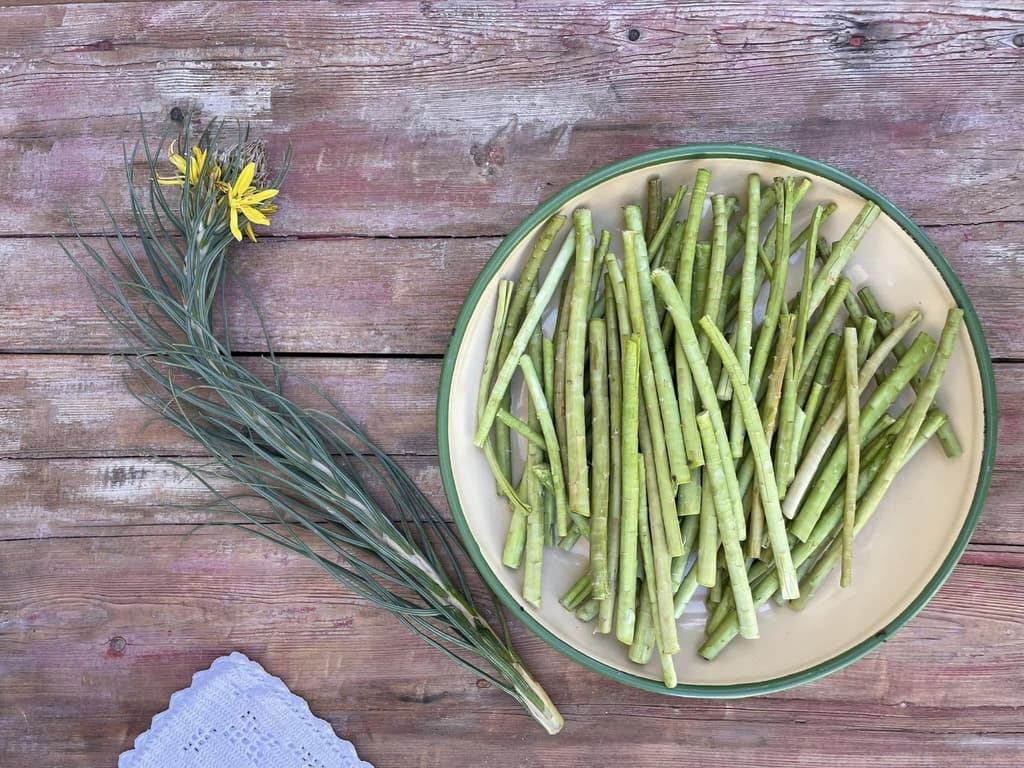
Discovering and Cooking Asphodelaceae: A Taste of Local Cuisine
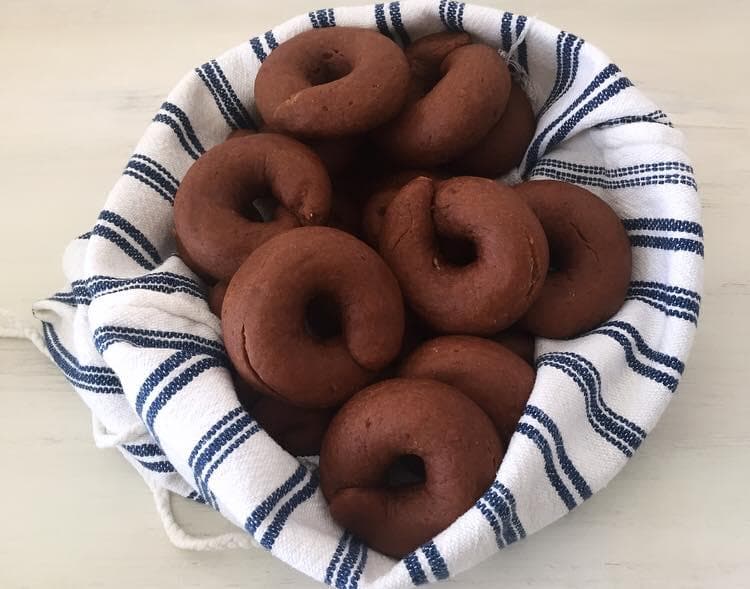
Moustokouloura

Pie with 'Yachnera' Greens: Baked to Perfection
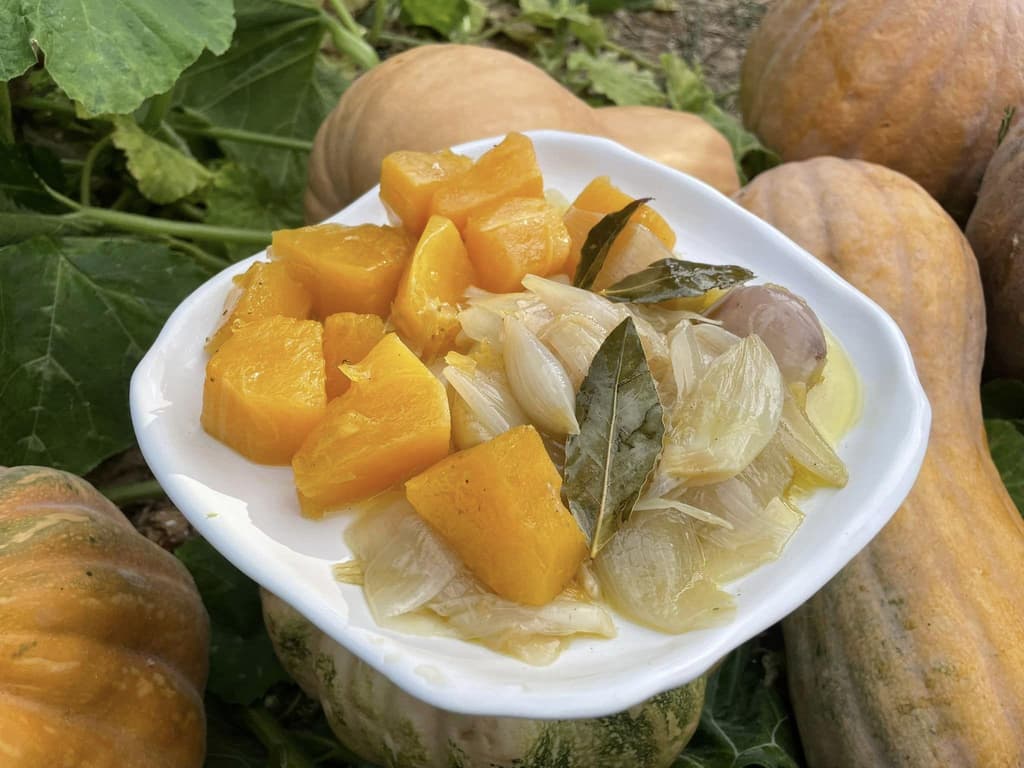
Pumpkin Stifado
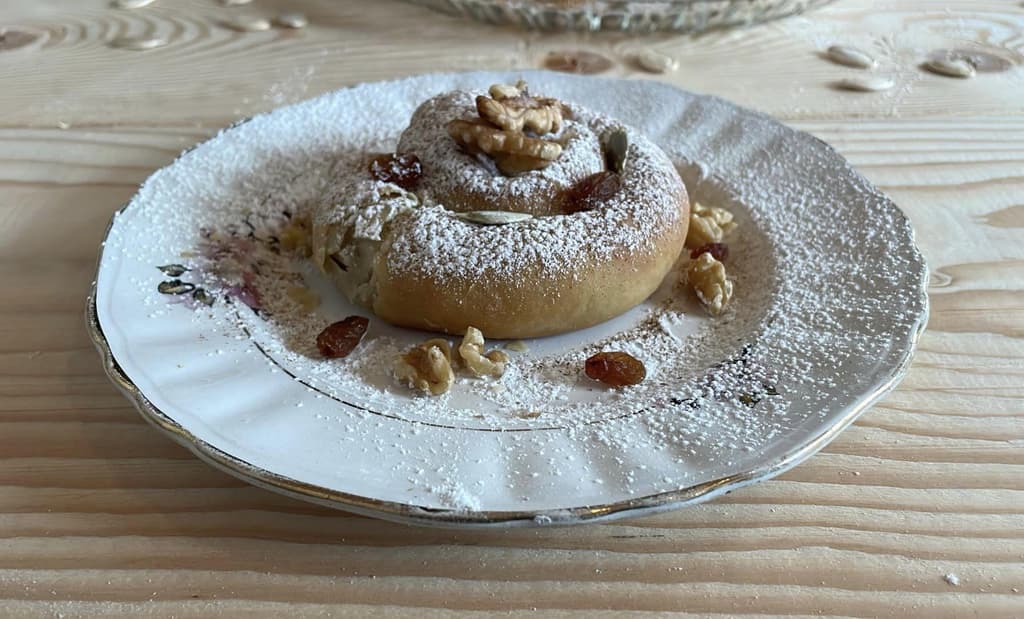
Sweet Pumpkin Pies with Raki Leaves (Oven)

Xinochondros: Sour Bulgur Pasta
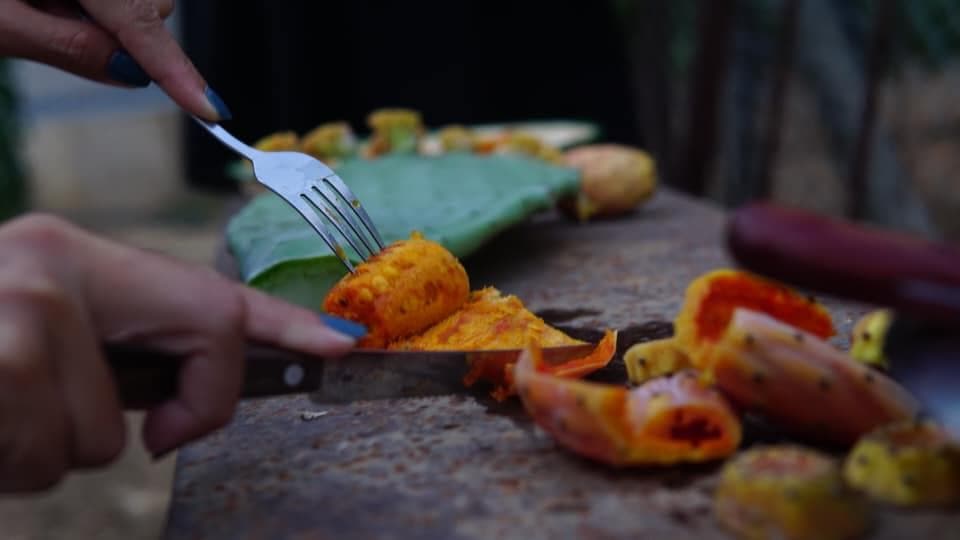
Prickly Pear or Indian Fig
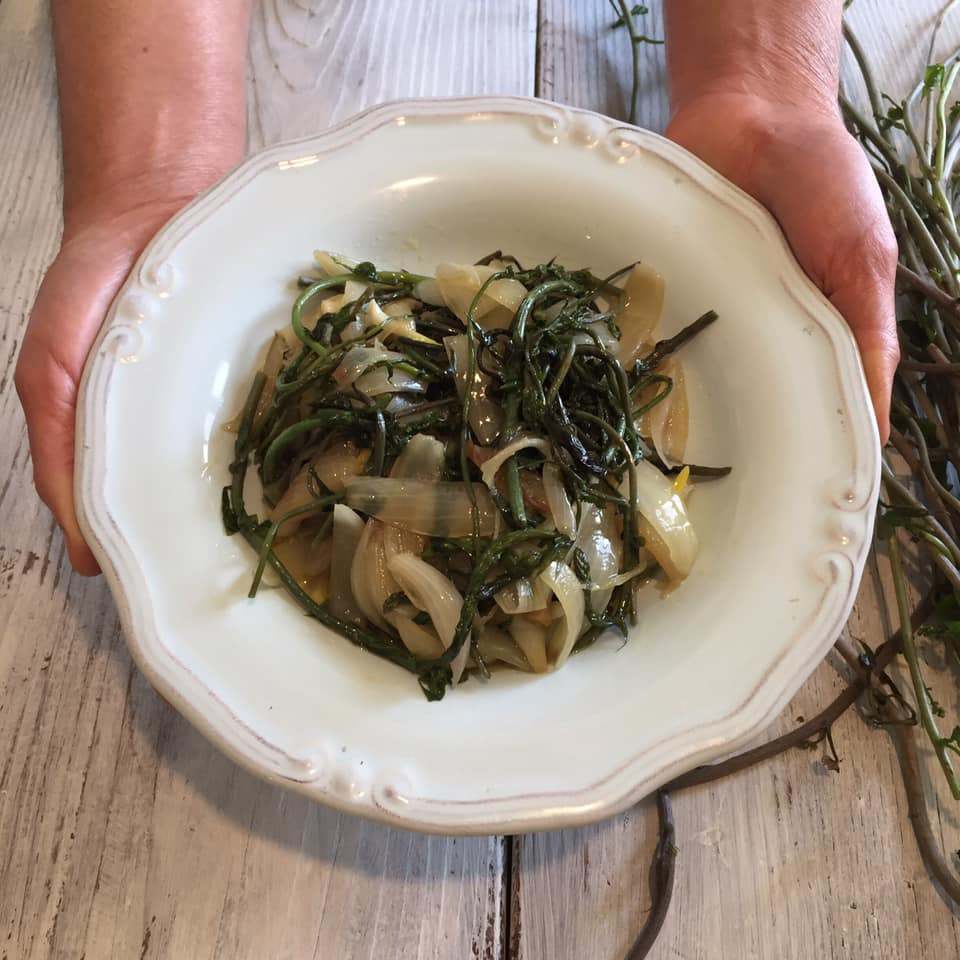
Black Bryony

Tahini Soup without Oil

Chylofta with Milk

Tyrozouli or Cretan Home Cheese

Pickled Tassel Hyacinth

Sourdough Dagoulakia
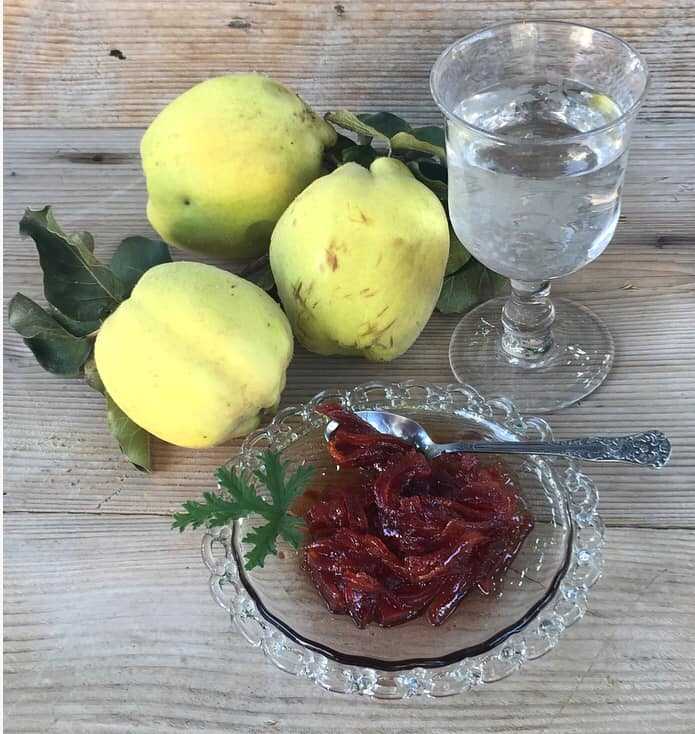
Quince Confection

Delicious Homemade Treat with Lemon Blossoms

Tiganopites: Greek Fried Pies

Dietary Practices in 17th Century Crete

Lychnarakia

Lazarakia

Kalitsounia from Chania
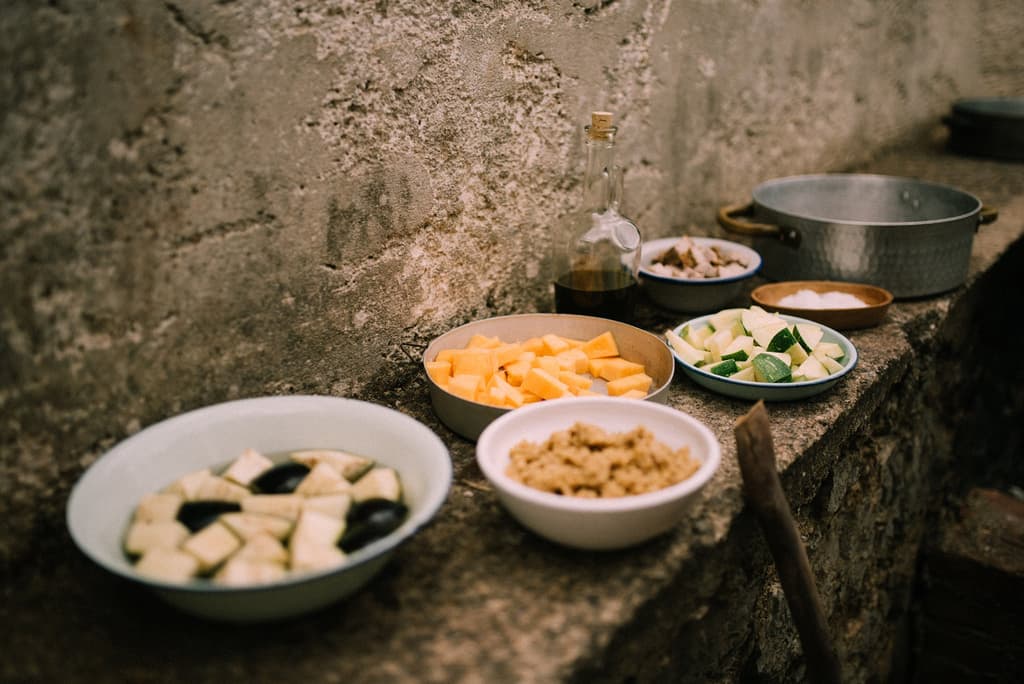
Apaki with Xinohondros and Vegetables

Chickpeas with Yachnera: A Delightful Dish
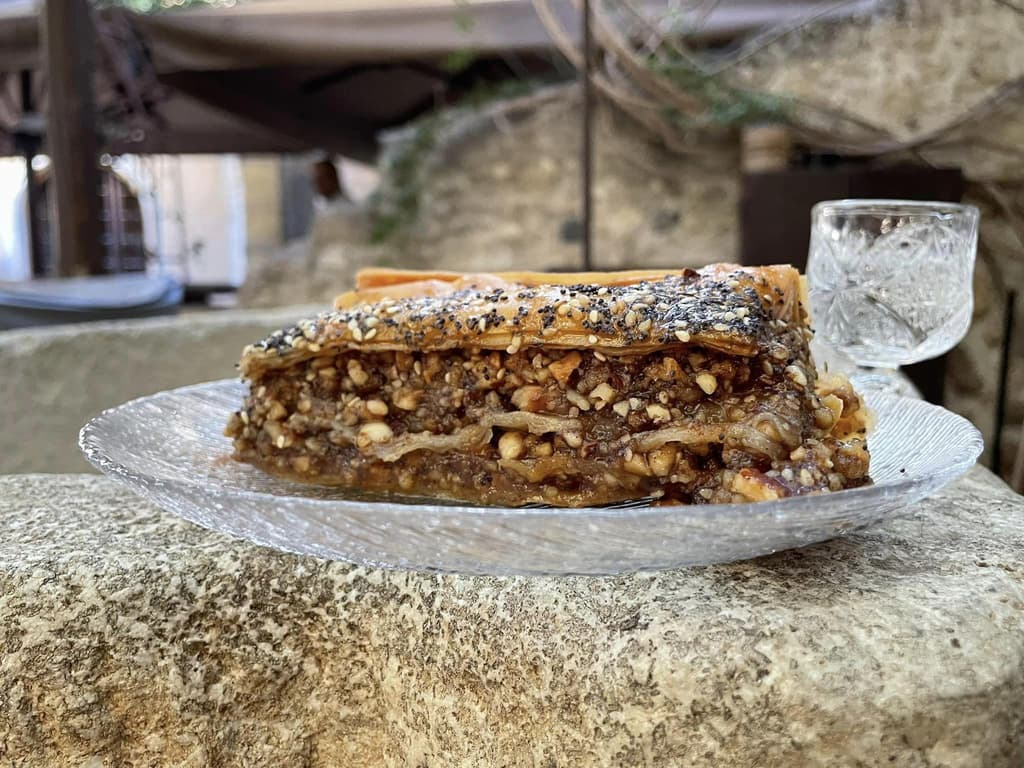
Gastrin

Fotokollyva
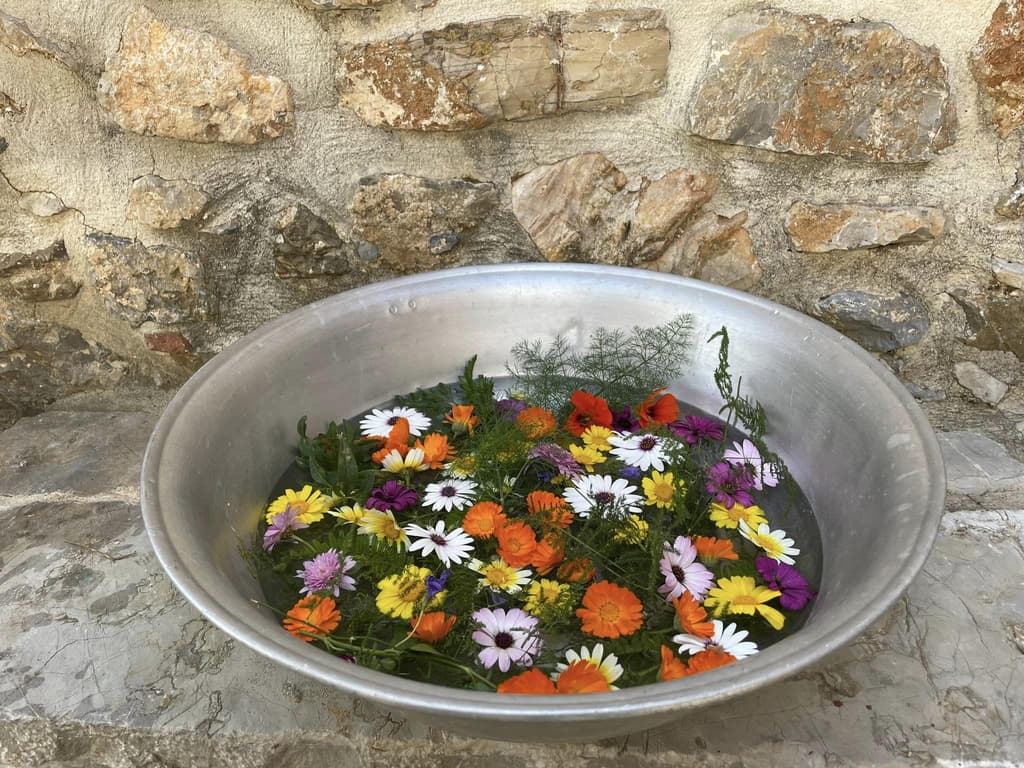
Dyeing Easter Eggs with Madder Root and Flower Blossoms

Biza or Manarolia Stew with Eggplants

Antikristo or "Ofto" Meat

Eftazymo Bread

Skioufichta Macarounia

Anevata Kalitsounia

Galatera

Sykomarides

Snails Stifado

Beetroot Salad

Bitter Orange Spoon Sweet (Nerantzi)

Loukoumia or Koubania

Fasouloryzo
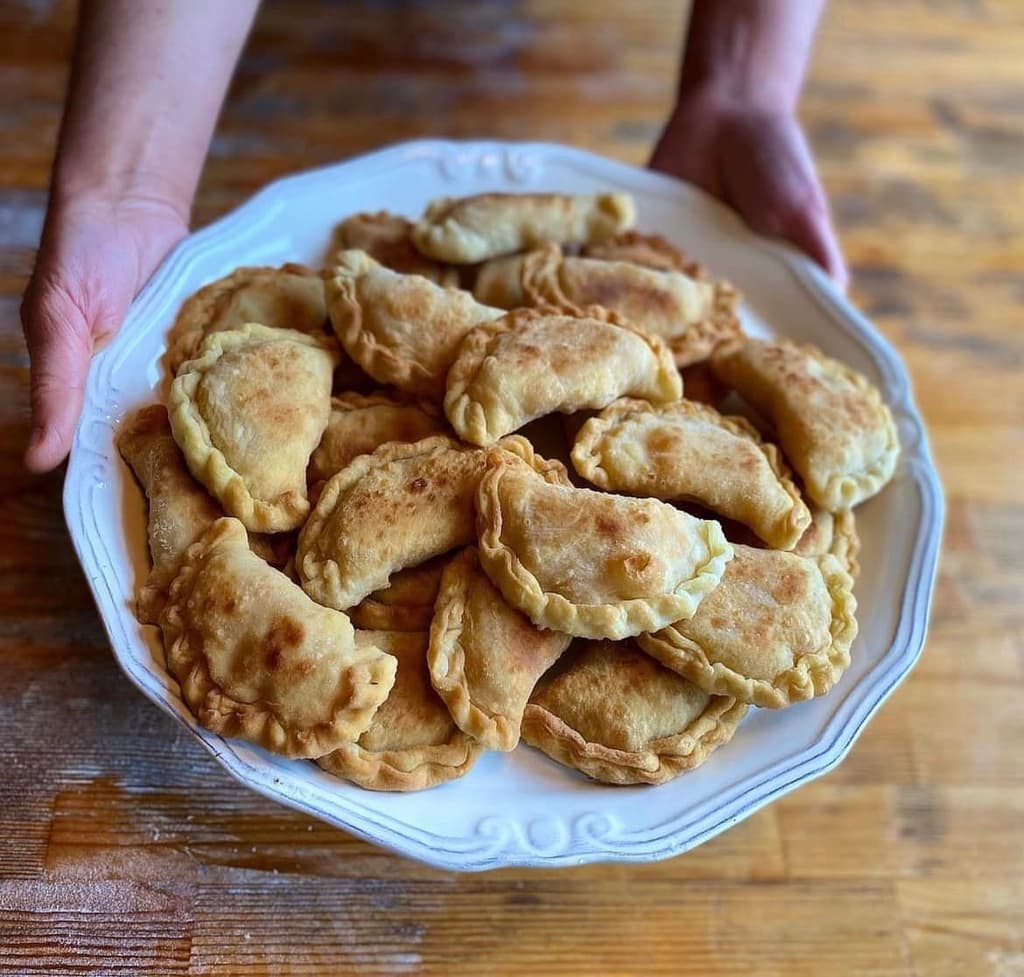
Pumpkin-Filled Pitarakia

Biza or Manarolia Stew with Eggplants
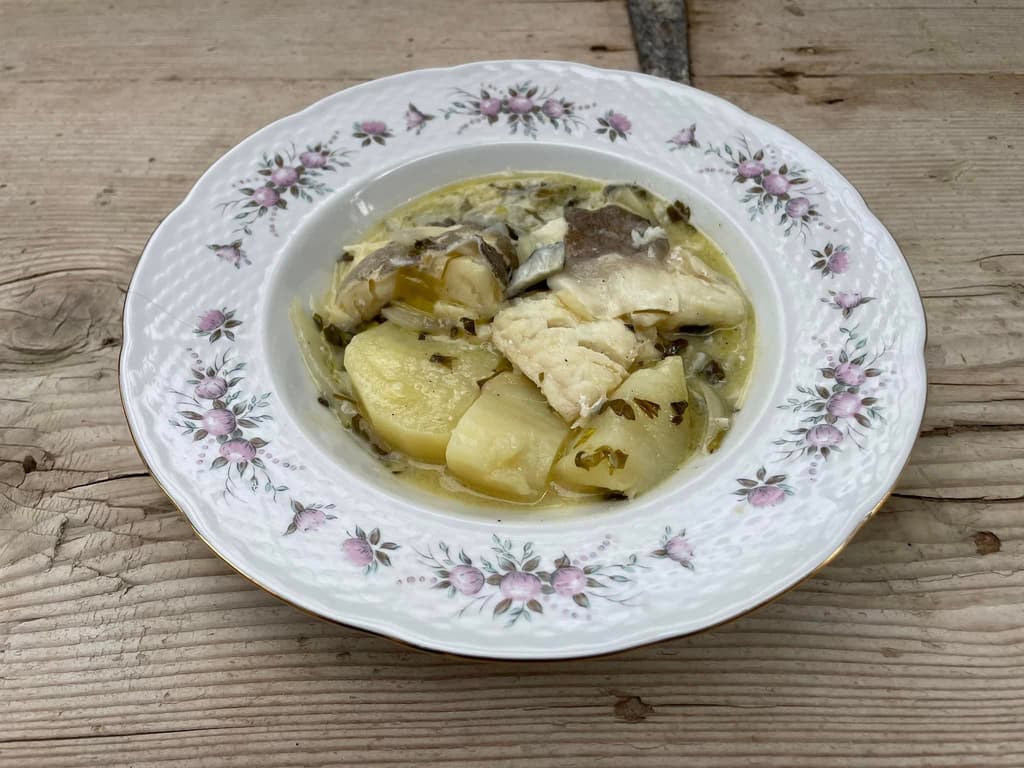
Salted Cod with Bitter Orange Sauce

Sountrimades

Ryzogalo

